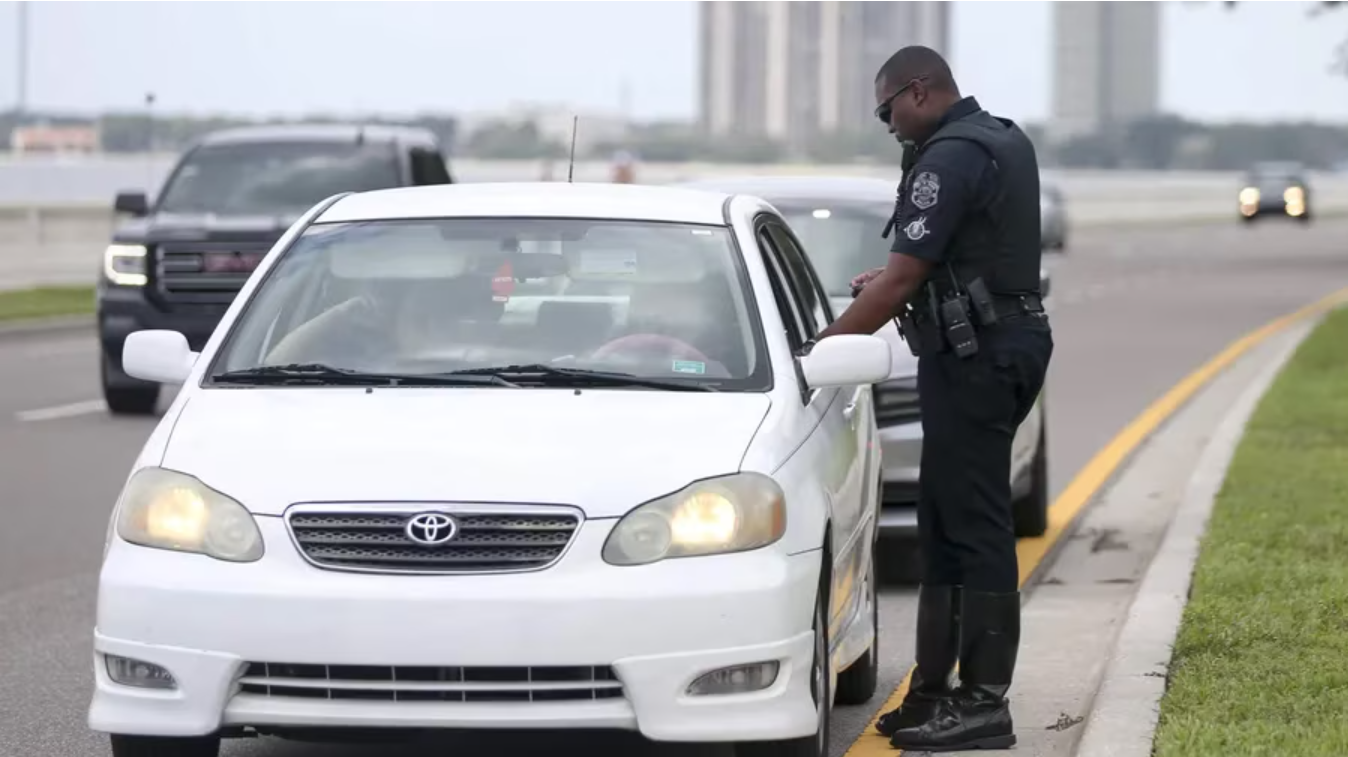By Tony Marrero, Tampa Bay Times
For years, Hillsborough Sheriff Chad Chronister and a coalition of congregations that lobbies for criminal justice reform have found common ground.
The Hillsborough Organization for Progress and Equality, known as HOPE, has praised Chronister for his efforts to launch and expand programs to help people avoid arrest for low-level offenses.
But the group’s latest request to expand an adult diversion program has received a noncommittal response from Chronister and exposed a rift with the sheriff, who recently told the group he and his staff would no longer meet with HOPE due to what Chronister described as HOPE’s breaches of “basic decorum.”
The effort has also highlighted key differences in the stances of former Hillsborough State Attorney Andrew Warren, the prosecutor ousted from office by Gov. Ron DeSantis, and Susan Lopez, whom DeSantis picked to fill the post.
At issue is the county’s Adult Pre Arrest Diversion Program. Launched in 2017 largely due to the efforts of Chronister and Warren, it allows first-time offenders to avoid arrest for some misdemeanors by receiving a civil citation and completing court-mandated requirements. Criminal driving offenses, including racing, reckless driving, DUI and driving without a valid license or insurance, are not eligible.
HOPE wants to expand the program to include some people caught knowingly driving with a suspended license. The goal, the group says, is to help people avoid arrest records for driving because they can’t afford to pay traffic fines but needed to get to work, school and other necessary destinations.
“We know that’s a very bad downward spiral for many people who get arrested,” said Sherre Henley, a member of St. Mark’s Episcopal Church in Tampa and HOPE’s recording officer.
It’s unclear how many more people might be eligible for the program if the change were made, but HOPE notes that the potential pool is large. In 2019, the most recent year for which data is available, nearly half of the 30,000 misdemeanor arrests in Hillsborough were for what HOPE calls “nondangerous” traffic offenses and nearly 40% of those were related to driver’s licenses. Making a fraction of those cases eligible for diversion would make a difference, HOPE members say.
In an interview, Chronister said he “wholeheartedly” supports the idea of adding some suspended license offenses to the diversion program, but neither he nor any other Florida sheriff have come up with a way to do so within their existing legal authority.
He said sheriffs do not have the authority to waive state-imposed fines that result in suspended licenses, so it’s unclear how diversion criteria could be created.
“I don’t want to see people suffer additional consequences because they can’t afford a ticket, but there are logistical issues that I can’t overcome,” Chronister said. “I think there are a lot of sheriffs who want to do it and they face the same obstacles, and that’s why no one has.”
Chronister noted the Sheriff’s Office has a policy that states deputies will not take motorists to jail for misdemeanor traffic offenses, with some exceptions, but rather issue them a citation and a notice to appear in court.
“There’s still accountability and they still have to address it, but we’re not taking them into custody and putting that additional burden on them,” he said.
HOPE counters that a notice to appear still shows up as an arrest on a person’s record during background checks.
“And that still hurts people’s lives and livelihood and housing and all of those issues,” said HOPE member Chris Kravitz, pastor at Waters Avenue Church in Tampa.
HOPE also asked Chronister for a screening process at the jail, which the Sheriff’s Office operates, to flag offenders who are currently eligible for the program but were arrested anyway. And the group is seeking a similar screening process for people who are issued notices to appear for eligible offenses in lieu of being taken to jail.
Sheriff’s Office spokesperson Amanda Granit said jail clerks and supervisors already check if people are eligible for diversion programs. She said screening notices to appear in court would be a task for the Hillsborough Clerk of Court’s office.
A lost ally
HOPE lost an ally in the effort when DeSantis removed Warren, the county’s twice-elected, reform-minded prosecutor.
In March 2022, the Times reported that officials were discussing an expansion of the adult diversion program to include some driving offenses. Warren at the time said he was working on a plan with Chronister, public defender Julianne Holt and Chief Judge Ronald Ficarrotta. All were instrumental in creating the program and a similar one for juveniles.
At the time, Chronister said, “The discussion surrounding driving offenses is still preliminary and evolving.”
In August, DeSantis removed Warren from office, accusing him of refusing to enforce certain laws. (U.S. District Judge Robert L. Hinkle ruled in January that the governor violated both the Florida Constitution and the First Amendment in suspending Warren. The judge also concluded that he lacked the power to put Warren back in office. Warren has appealed.)
DeSantis replaced Warren with Lopez, a former prosecutor whom DeSantis had appointed to a county judge seat in 2021.
In response to questions from the Times, a spokesperson for Lopez’s office provided a statement that did not answer whether Lopez supports HOPE’s proposals.
“As prosecutors, we do not create laws rather we enforce them,” the statement said. “Legislative solutions such as the one HOPE proposes merit consideration by law-making bodies.”
In an interview, Warren said the county should divert some driver’s license offenders to the program.
Warren said his office during his tenure was seeing up to 12,000 driver’s license-related cases annually. After instituting a policy to dismiss cases after offenders got their licenses reinstated, prosecutors were dismissing a few thousand of those cases each year. A significant number of those were first-time offenders who could benefit from the diversion program, Warren said.
“Not the habitual offenders, not anyone with a DUI who shouldn’t be on the road, but people who have had their license suspended because they didn’t pay off a speeding ticket or a parking ticket,” Warren said. “We’re talking about a huge number of cases that just create clutter in the system. It doesn’t serve any public safety purpose by prosecuting people. It only furthers the criminalization of poverty.”
Holt, the public defender, told HOPE in a letter that she supports adding knowingly driving with a suspended license to the adult diversion program “when appropriate.”
Holt in an interview said the program should be tailored to help some first-time driver’s license offenders who merit inclusion, and she thought that by now the county would be working toward that. She said there are potential logistical challenges, such as ensuring officers in the field are able to determine why a driver’s license has been suspended.
“But really it starts with the concept anyway, so the question is, do you believe in doing it or not doing it?” she said.
“We’re not going away”
Chronister sent HOPE leaders a letter on Feb. 6. stating he and his staff will no longer meet in person with its representatives.
“Over the past 5 years, while working with HOPE, we have remained professional, honest and conducted ourselves in good faith,” Chronister wrote. “Unfortunately, on multiple occasions, your organization has not upheld these same tenants and we have expressed our concerns and disappointment in these instances.
“The continued inability or unwillingness to conduct yourselves in a manner consistent with basic decorum has and continues to erode our confidence in HOPE as a continued stakeholder,” the letter continued.
Chronister wrote that he welcomed correspondence from the group and remained optimistic that HOPE would “make the necessary adjustments to enable future meetings to occur.”
The letter does not detail the breaches of decorum. Granit, the office spokesperson, declined to elaborate “out of professional courtesy for HOPE.” Group leaders told the Times they don’t know what Chronister was referencing.
Last week, members of the group held a prayer vigil in Ybor’s City Centennial Park, then marched to the Sheriff’s Office headquarters and delivered several hundred signed postcards asking Chronister to take action.
“Thousands of people in our county, thousands of families in our county, are negatively impacted by this,” said the Rev. Bernice Powell Jackson, co-president of HOPE. “We hear their voices, so we’re not going away.”
View the original story here.






